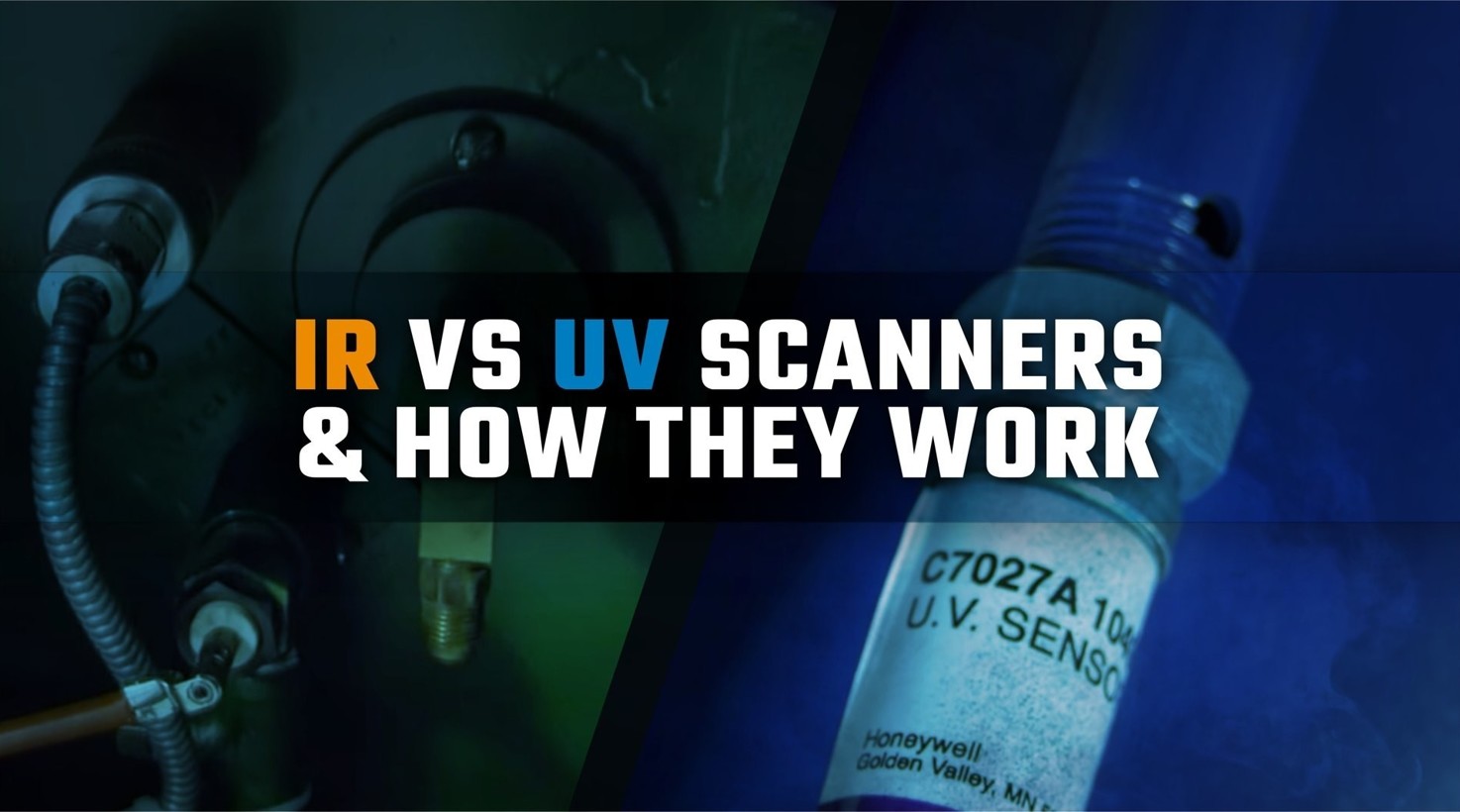Boilers need heat. More often than not, that means some sort of flame is involved. Where there’s fire, there needs to be some sort of monitoring system in place. That’s where flame scanners come in. Basically, flame scanners do what the name implies: they check for the presence of flame. If a flame should happen to go out for some reason, that could not only shut down the boiler or greatly reduce its capacity, it could also create a potentially explosive environment as unburned fuel builds up.
Flame scanners are pretty important, as you can see. There are two main types of them out there, Infrared and Ultraviolet. While they perform roughly the same function, they do it two different ways.
Infrared Flame Scanners
When fuel burns, the very edge of the flame (where the fire ends and the exhaust gases begin) flickers with a specific frequency of light in the infrared spectrum. Infrared (IR) flame scanners use a lithium/tantalum crystal to detect this flickering infrared light, and convert it into an electric signal which the boiler control system interprets as the presence of flame.
IR flame scanners are ideal for any type of flame. However, they are particularly effective at detecting combustion in hazy and smoky environments, such as you’d find in an oil burner. Even with heavy particulates in the air, some of the infrared light will still reach the flame scanner, and register as a flame.
IR flame scanners do have one minor drawback, though. Because they register the light radiation given off by a heat source, they can sometimes be fooled by residual heat given off by the refractory material in the burner walls.
Ultraviolet Flame Scanners
Ultraviolet (UV) flame scanners perform the same function as IR flame scanners, but they work in an entirely different way. Inside every UV flame scanner, there’s a small quartz capsule full of inert gas. As the specific frequencies of UV light produced by combustion strike this capsule, they ionize the gas inside. This creates electrical connectivity between the anode and cathode inside the capsule, generating electrical pulses that the boiler control system interprets as the presence of a flame.
UV flame scanners are accurate and fast, with response times measured in microseconds. However, they do work best in cleaner-burning applications, including propane and natural gas. They can also occasionally confuse ignition spark with an actual flame, but that’s really minor.
Don’t get burned by inefficiency or unsafe boiler operation. Keep your burner operating properly with a reliable, accurate flame scanner installed by the experts at WARE.
